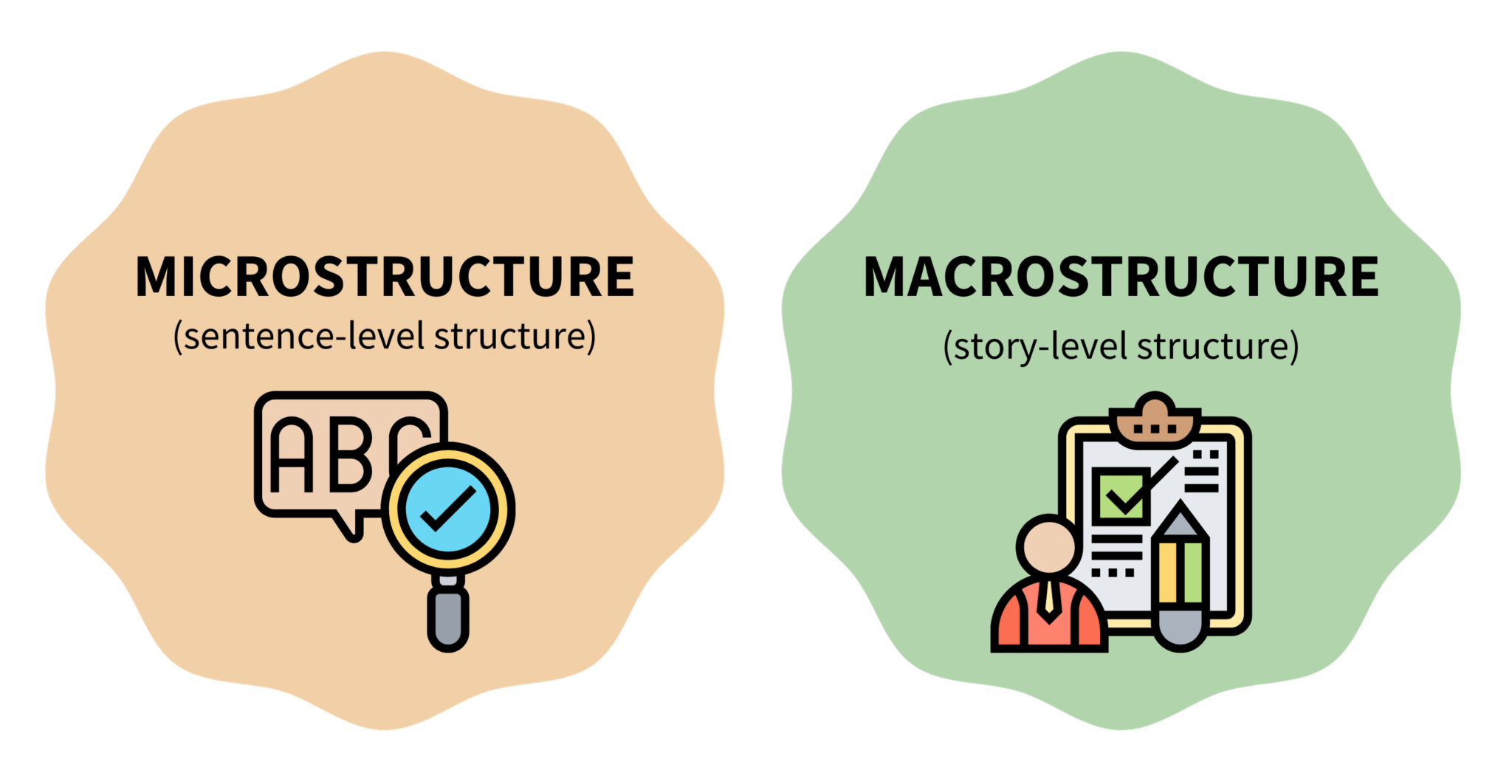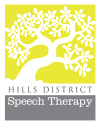About this group
This group aims to use the Supporting Knowledge in Language and Literacy (SKILL) Program to teach the macrostructure and microstructure required to produce coherent oral narratives. There is a strong link between oral narratives and written expression and many children who cannot produce written texts struggle with oral narratives. Microstructure elements, such as appropriate use of grammatical structures, will also be targeted. This group uses visuals to teach each element of an oral narrative in a fun, engaging group setting. Participants are encouraged to share their ideas with their peers. It should be noted that while this group focuses on the oral production of narratives rather than the written production, written expression will still take place.

This includes grammar and vocabulary production, complexity and accuracy in sentences within a story.
This includes the structuring of the story from beginning to end, with incorporation of key elements including characters (with names and emotions), setting, and plot/s.
More information on the SKILL Program
SKILL is a 3-phase, treatment program developed to support narrative construction, comprehension and recall. The program has been trialled and researched in 1:1 sessions and groups of up to 4 children with language delays, those with english as a second language (ESL) and children with Autism Spectrum Disorder (ASD) (1:1 sessions).The three phases of the program are as follows:
Phase I
Learn through explicit instruction, story elements and causal connections.
Develop an understanding of each story element, how to use them and link them together
Phase II
Elaborating Stories
Development of cognitive and linguistic skills
Phase III
Independent Storytelling
Fostering metacognitive skills to improve comprehension monitoring
Reference: Gillam, Sandra & Gillam, Ronald. (2016). Narrative Discourse Intervention for School-Aged Children With Language Impairment. Topics in Language Disorders. 36. 20-34.
Who is the group best suited for?
This group is primarily structured to support primary school aged children (Kindergarten to Year 6). Children can present with mild-moderately impaired expressive language skills and delayed literacy skills, and still attend this group given they are able to follow instructions, remain seated and interact with similarly aged peers with minimal support.
Prior to starting group therapy, all children will be assessed using the Monitoring Indicators of Scholarly Language (MISL). This tool allows us to determine your child’s current oral narrative skills and thoroughly compare progress before and after completing the program.
How much does it cost?
Upon registering your interest online, or through your therapist (for current clients), you will be provided with information on the specific costs for the program. Rebates are available for clients with private health insurance and NDIS funding. Please note that payments are upfront and non-refundable.

When does the group run?
Our Oral Narrative groups run for 60 minutes every week for the duration of the school term (i.e. 10 weeks) .You can register your interest in our next group using the link below which will take you to the enquiry form on our contact page. Please be aware that all new clients to HDST, including clients that have not been previously assessed by a speech pathologist, will be advised to attend a 30 minute screening consultation that will allow us to determine your child’s abilities and tailor the groups to their needs.
